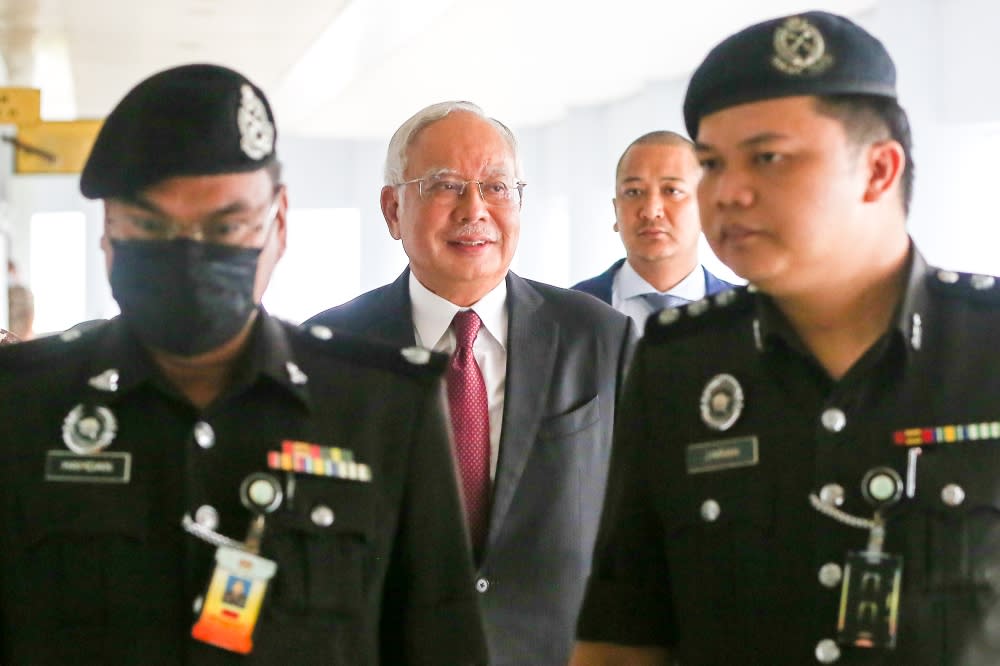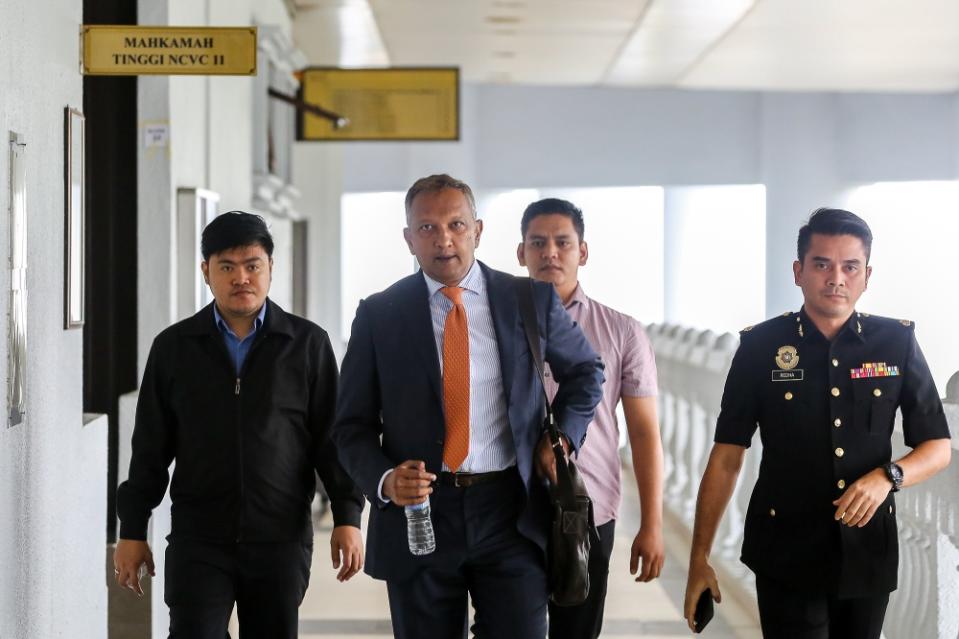Ex-banker: I had impression then PM Najib knew 1MDB, SRC money went to ‘optical illusion’ funds

KUALA LUMPUR, March 1 — A former Singapore banker today told the High Court he was under the impression that Malaysia’s then prime minister Datuk Seri Najib Razak knew about the monies that were sent in and out by 1Malaysia Development Berhad (1MDB) and its former subsidiary SRC International Sdn Bhd into fiduciary funds that were meant to give off an “optical illusion”.
Kevin Michael Swampillai, a former banker of the BSI Singapore bank which has since been shut down, said he now believes the fiduciary funds were used by 1MDB and SRC to hide financial transactions from Malaysia’s scrutiny.
Swampillai was testifying as the 44th prosecution witness in Najib’s trial over the misappropriation of RM2.28 billion of 1MDB funds, which were alleged to have entered the former finance minister’s private bank accounts.
Swampillai said BSI bank’s clients SRC, 1MDB, Brazen Sky Limited and Aabar Investment PJS Limited — now known to be a fake Aabar instead of the actual Abu Dhabi firm — carried out transactions through fiduciary funds.
Although it was the employees of these companies who gave instructions on these transactions to BSI’s relationship manager Yak Yew Chee, Swampillai said he was “always under the impression that these transactions were undertaken with the knowledge of the then prime minister Najib Razak”.
Swampillai said he had formed this impression based on the fact that both 1MDB and SRC were owned by the Finance Ministry when Najib was finance minister, with Najib was also chairman of 1MDB’s board of advisers then.
Swampillai also cited Low Taek Jho’s indications to BSI Bank that he was an “adviser to Najib”, with the BSI former banker saying this was told to him by his bank superiors and by Yak.
In explaining why he believed Najib knew about the transactions in the fiduciary funds, Swampillai said BSI Bank had asked “persistent questions” on where the money channelled through the fiduciary funds would finally end at and what it would be used for, but noted that Low had consistently responded by claiming that the transactions were “highly confidential” government-to-government investments and no further information could be made available.
“Finally, the size of these transactions were of such a high magnitude and frequency that they had to have some kind of apex approval such as that issued by a highly placed government official such as a prime minister,” he said.

Former BSI banker Kevin Michael Swampillai (centre) is pictured at the Kuala Lumpur High Court Complex March 1, 2023. — Picture by Yusof Mat Isa
Optical illusion to hide identities, avoid scrutiny
Swampillai, who was head of BSI Singapore’s wealth management services, said he made a presentation on fiduciary solutions as requested by Yak in a meeting with Low in 2011 at the St Regis Hotel in Singapore. Yak and Swampillai’s subordinate Yeo Jiawei were also present.
Swampillai said SRC opened an account with BSI Bank soon after this meeting with Low, while Aabar and Brazen Sky also opened accounts in 2012, followed by 1MDB Global Investment Limited (1MDB GIL) in 2013.
He said the common thing for all these companies which were BSI Bank clients was Low’s presence and that all of them came under Malaysia’s Finance Ministry and used fiduciary funds.
Although there were alternative fiduciary solutions like insurance and trust structures that could be used to layer money flows and hide client identities, Swampillai noted that Low chose to use fiduciary fund structures.
Swampillai said he was “not aware” of Low’s motives for selecting fiduciary funds instead of insurance and trusts back when BSI Bank’s relationship started with Low and those MoF-owned companies in 2011, but now believes it to be a scheme to give the off the illusion that 1MDB funds were being invested in genuine investments.
“However, with the benefit of hindsight based on the information that has come out in the public domain since 2015, it is evident to me that Jho Low intended that the fiduciary funds would be better at giving the optical illusion to various stakeholders in Malaysia and elsewhere that the funds belonging to SRC, 1MDB and Aabar were invested in bona fide investment instruments such as investment funds,” he said.
Unlike a fiduciary deposit where it would be like a fixed deposit which could earn interest for a bank client, Swampillai said the fiduciary funds used by SRC and 1MDB were “conduits to channel monies to various beneficiaries known only to” themselves while also obscuring their intentions from “scrutiny by various stakeholders in Malaysia”.
Bank clients such as 1MDB which used fiduciary funds have “virtually limitless flexibility” to decide things such as where the money will eventually end up at, and the timing and amount of money to be sent through the fiduciary funds, he said.
Swampillai said BSI Bank’s relationship manager Yak would communicate instructions from the bank’s client 1MDB and related companies like SRC and Aabar to his wealth management services section.
But Swampillai said that Yak had also taken the “somewhat unique” step of also keeping BSI Bank’s senior management — such as its CEO, deputy CEO and risk management and compliance divisions — in the loop about these instructions from the 1MDB group of clients, due to the size of their transactions and the amount of attention they had attracted within both BSI’s head office in Switzerland and its Singapore office.
Swampillai is expected to continue testifying before judge Datuk Collin Lawrence Sequerah this afternoon.




